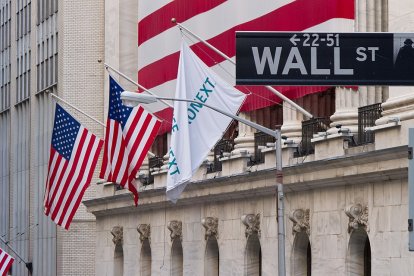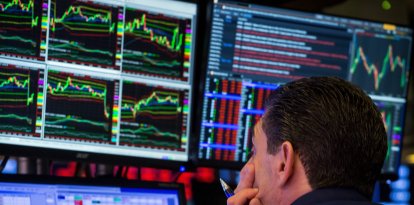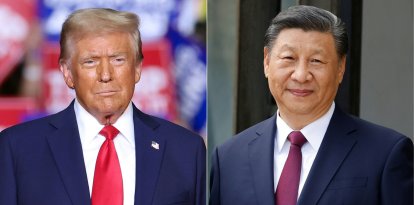Wall Street ends the week with gains despite China's tariff counterattack
The Dow Jones rose 619 points or 1.6%, while the S&P 500 soared 2% and the Nasdaq Composite led the rally at the close with a 2.1% gain.

Wall Street, in a file image.
The financial market closed higher on Friday, despite new signs of tension in the United Statesafter the tariff counterattack by the Chinese regime against the country, in what has represented the latest escalation of the trade war between the two major world economic powers. Thus, the Dow Jones rose 619 pointsor 1.6%, while the S&P 500 soared 2% and the Nasdaq Composite led the rise at the close with 2.1%. On the other hand, theU.S. dollar fell 0.56%, marking its fifth consecutive down day, thus recording its worst week since 2022.
Likewise, the gold reached new historical highs by closing with a rise of 1.75%, being the equivalent of 3,229 dollars, in what several have defined as the greatest sign of the concerns that exist in the market about geopolitical conflicts. Similarly, the yield on the 10-year Treasury bond rose once again to 4.492%, representing its highest rise since 2001, after the tragic September 11 of that same year. Meanwhile, the Nikkei 225 stock index in Japan fell 3%, while Europe's Stoxx Europe 600 fell only 0.48%.
Loss of confidence.
In an interview with Reuters, global head of markets strategy at Brown Brothers Harriman in New York, Win Thin, explained that "While it is true that much of the dollar's weakness over these past few weeks has clearly been related to worries in the markets about a recession or the possibility of the Federal Reserve cutting rates, but this has gone beyond that."
Thin also explained that what is behind the dollar's decline is skepticism about tariff policies: "It's more about a loss of confidence and credibility in the dollar and then in U.S. policymaking. Normally, in episodes of risk aversion, the dollar should strengthen as a safe haven, but in reality it has been the yen and the Swiss franc that have occupied that role, while the dollar has been under pressure," the economist detailed.
RECOMMENDATION




















